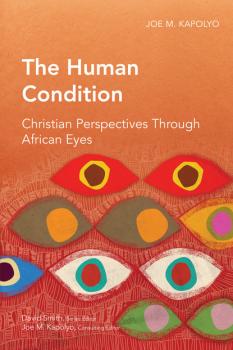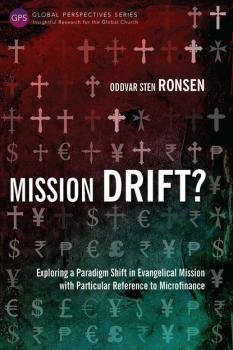MREADZ.COM - много разных книг на любой вкус
Скачивание или чтение онлайн электронных книг.In Academia for the Church
Tension between theory and practice in theological education is an unfortunate yet common occurrence, with educators sometimes finding themselves on one extreme or the other. Some academics can be so immersed in high-level theological discourse that they hardly interact with the main questions of the average church-goer, while others are so keen to be engaging and relevant they fail to be rigorous in their scholarship. Regardless of the reasons the results are the same – failure to present the good news with a powerful, credible voice. To address this tension between academia and the church, a group of Eastern European theologians came together in the spring of 2013 in Berekfüdő, Hungary. This publication is a collection of 10 edited papers presented at that conference. While topics are addressed from a European context the principles behind them are far-reaching, providing important insight for the global church and academy alike.
A Study of Current Leadership Styles in the North African Church
Indigenous church leadership is a new phenomenon in North Africa. Until recently, non-Muslim background believers were the only leaders of churches in this region. With the current growth of national churches there are increasingly more leaders from a Muslim background leading to a diverse range of leadership styles. This publication, a first of its kind to specifically explore church leadership in North Africa, investigates common values, beliefs and cultures among church leaders. Using four identified leadership styles the author further expands by looking at the impact they have on congregations, society and the future development of church leaders in the region.
The Human Condition
Human beings are complex. For all our contemporary knowledge and ability, however wonderful and widely available, people around the world face a crisis of human identity that calls into question the meaning of existence and the basis of moral behaviour.
Responding to these challenges, Joe Kapolyo recognizes both the authority of the Bible, which teaches that people are created in the image of God but also corrupted by rebellion and sin, and the relevance of distinctly African perspectives on what it means to be human. Although he reads these perspectives critically, they lead him to reaffirm the biblical vision of redeemed human life in community in Christ. This vision offers a solution to the crisis of identity experienced by people who have forgotten who they are – and whose they are.
The Practice of Mission in Egypt
Most mission studies have focused on the work of Western missionaries going to Majority World countries, with few examining indigenous churches and their relationship with Western mission agencies in practicing mission. This book is a historical study of the relationship between the Evangelical Church in Egypt and the American Presbyterian Mission. Wahba covers from when the missionary work began in 1854 until after the departure of the Mission from Egypt in 1967, and the transfer of all the work to the Egyptian Evangelical Church. Tracing the mission work of Egyptians within Egypt and neighbouring Sudan, Wahba analyses the impact that the relationship with the American Mission had and how it determined the indigenous Church’s practice and perspective of mission.
The Church in the World
Historically, studies of the church in Africa have tended to focus on church history or church-state relations, but in this publication David Zac Niringiye presents a study of the Church of Uganda focused on its ecclesiology. Niringiye examines several formative periods for the Church of Uganda during concurrent chronological political eras characterized by varying degrees of socio-political turbulence, highlighting how the social context impacted the church’s self-expression. The author’s methodology and insight sets this work apart as an excellent reflection on the Ugandan church and brings scholarly attention to previously ignored topics that hold great value to society, the church, and the academic community globally.
Mission Drift?
The Lausanne congress of 1974 marked the widespread adoption of integral mission as essential to the evangelical witness of Christ in our world. Ever since there has been ongoing debate as to the roles of evangelism and social action. In this book Oddvar Sten Ronsen argues that instead of the priority of evangelism over social action there should be the anticipation of evangelism as a result of social action. Although evangelism and social action may not occur at the same time, the author warns of the possibility of “mission drift,” where projects begin with the intention of meeting the social and spiritual needs of the people, but fail to proceed to evangelism. In succumbing to this mission drift, projects cease to be true to the principles of integral mission. Combining theological reflection with case studies of microfinance enterprises in the Philippines and Thailand, Ronsen evaluates the sustainability of, and social good delivered by, these Christian projects to the communities they serve. The research sheds light on the causes of a drift from integral mission, how these can be managed and whether microfinance can be a bridge for the gospel.
Connecting Curriculum with Context
Assessment of the impact of theological education has always been a challenge. In a pluralistic world where graduates are ministering in greatly varying contexts and cultures, theological education has to be context sensitive and relevant. It is no longer enough to ensure that students have mastered core theological concepts and truths, have biblical knowledge, and some basic ministry skills. The impact of a theological institution is measured by the effectiveness of their graduates in their specific ministry contexts. Therefore the theological curriculum has to be connected with the contexts of the graduates. Theological institutions need to be clear as to what they hope to accomplish and this will determine the model of theological training that they use. This book explores various models of theological education, as well as identifying steps in the logical sequence of connecting curriculum with context.
Understanding and Developing Theological Education
Historically education has been driven from behind – the history, and above – the educational institution. Traditions and adherence requirements have led to inflexible models of school leadership that are focused on administration and rife with educational politics. In contrast, today’s theological landscape needs institutions with a grassroots-driven educational system, looking to a future that is biblically and theologically grounded. This publication, an English translation from the original German focuses on the leadership and curriculum development required for such a paradigm shift. Ott comprehensively assesses trends in current theological education across the world with detailed reference to wider trends in global tertiary education. Written primarily for those in leadership roles at theological schools and training institutions, this handbook is an essential resource for equipping the next generation of leaders in theological education.
Mission without Conquest
Almost sixty years ago, the Mennonite missionary team working in the Argentine Chaco decided to look for ways to be effective in their ministry while being faithful to Jesus’ lifestyle and teaching. They left behind paternalistic models and “conquering” methods and were liberated from the mindset of forming a denominational church. As a result, they found an alternative missionary style of walking alongside those they worked with, giving priority to the integrity of the local people. “Mission Without Conquest” is a historical narrative of how the Toba Qom people of the Argentine Chaco followed Jesus’ way from the time of their conversion until the formation of an autochthonous church. This book embodies a new way to approach the church’s missionary task – a way that makes the mission of Jesus Christ the paradigm for Christian mission until his return.
Russian Baptists and Orthodoxy: 1960-1990
Russian Baptists and the Orthodox Church have had a difficult and – at times – dramatic relationship over the past century and a half. However, the purpose of this thesis is to examine certain internal connections between these two Christian bodies. Despite the evident dissimilarity – in theology, church practice and traditions – there is common ground which has been largely unexplored. A number of features inevitably brought them together, such as living in the same country over a long period of time, sharing a history and national roots, responding to the same civic concerns, and finally – until recently – using the same Russian (“Synodal”) translation of the Bible. This thesis explores, first of all, the roots of the issue of Orthodox-Baptist similarities and dissimilarities in the nineteenth century. The remainder of the thesis focuses on 1960 to 1990. There is a chapter analyzing the way in which, in significant areas, Russian Baptist theology resembled Orthodox thinking. This is followed by a study of church and sacraments, which again shows that Russian Baptist approaches had echoes of Orthodoxy. The thesis then explores Baptist liturgy, showing the Orthodox elements that were present. The same connections are then explored in the area of Russian Baptist communal spiritual traditions. The examination of the Bible, beliefs and behaviour also indicates the extent to which Russian Baptists mirrored Orthodoxy. Finally there is an analysis of the popular piety of the Russian Baptists and the way in which they constructed an alternative culture. The basic views of Russian Baptists between the 1960s and 1990 have been drawn from periodicals of the Russian Baptist communities and from interviews with pastors (presbyters) and church members who were part of these communities. This often yields insights into “primary theology”, which in relation to many issues differs from official Baptist declarations that tend to stress the more Protestant aspects of Russian Baptist life. The aim of the thesis is to show that in a period in the history of the USSR when the division between the Western world and the Soviet bloc was marked, there was a strong Eastern orientation among Russian Baptists. This changed when the USSR came to an end. Over a number of years there was mass emigration of Russian Baptists and, in addition, pro-Western thinking gained considerable ground within the Russian Baptist community. During the period examined here, however, it is possible to uncover a great deal of evidence of Russian Baptists participating in Orthodox theology, spiritual mentality and culture.









